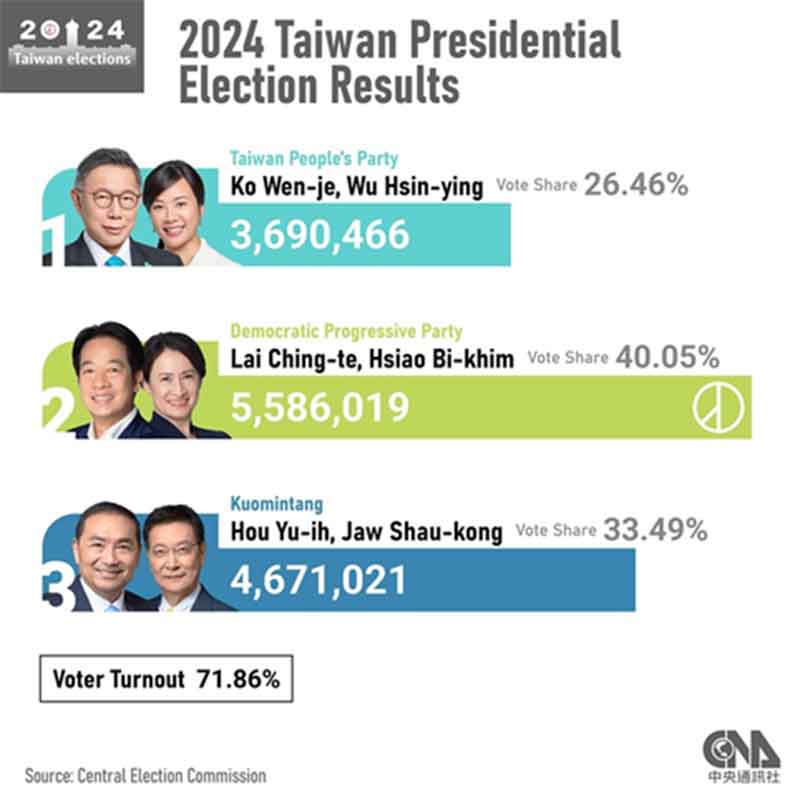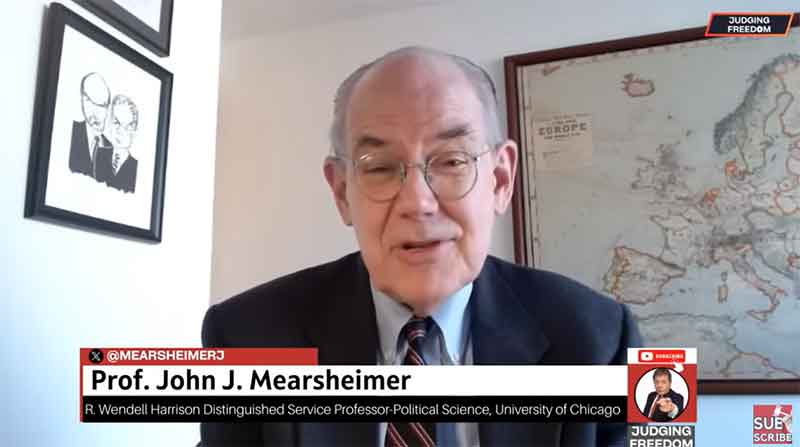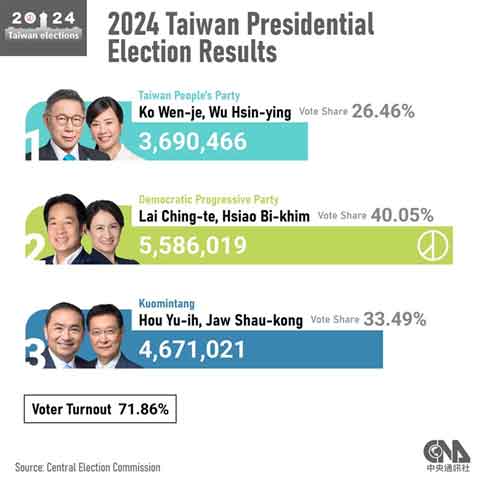
Any confrontation with the US, be it direct or indirect, can be won if the other side simply outlasts the political will of American politicians amid domestic pressure. This was the case not only in Vietnam, but also in Afghanistan and is increasingly so in Ukraine too. It might be added that Washington cannot even muster a coalition to confront the Houthis in Yemen over attacks on shipping in the Red Sea. Of course, that does not mean China is seeking a “worst-case” outcome over the island or that it is acting recklessly, far from it.
As the election of regional leader in the island of Taiwan approaches, the subject of reunification has inevitably been treated as a political taboo by both parties. The pro-separatist Democratic Progressive Party has been relentlessly pushing an independence agenda, believing that the island can court the support of foreign powers and successfully contain the Chinese mainland, making Taiwan’s separation from China a formal reality. They are resting on the assumption that the mainland has either the means to prevent the independence of Taiwan, or that the power of the West combined is enough to make the Chinese mainland fail.
There is no reason to assume that as much as the US may invoke strong rhetoric from time to time, it has the long-term political will and power to prevent reunification. Recent events, including those in Ukraine and in the Middle East, would suggest it is not willing to invest in a globally catastrophic war. Taiwan should therefore accept eventual reunification as a reality. It should strive to seek peaceful terms rather than to push against mainland’s bottom line and test its resolve.
The war in Ukraine has revealed how domestic political cycles in the US make it impossible to sustain a long-term investment and public support for a specific conflict if it is operating from a distance. Sure, while the US has formidable military resources and the capability to make a conflict costly for an adversary, any confrontation with the US, be it direct or indirect, can be won if the other side simply outlasts the political will of American politicians amid domestic pressure. This was the case not only in Vietnam, but also in Afghanistan and is increasingly so in Ukraine too.
On the matter of Ukraine, the US, backing Kiev as a proxy, has not been able to offer the resources and investment Ukraine needs to win a war over Russia and the political mood is increasingly turning against it, with European countries in the coalition also becoming increasingly apathetic.
In this case, how far is the US (and its allies) prepared to go in order to prevent the Chinese mainland’s reunification with Taiwan? And given the implications of the global economy, what price is it prepared to pay to block it? Similarly, we should also ask just how much political stakes the mainland is prepared to place on seeking reunification with Taiwan, and how will it deal with its red lines being crossed?
There is little reason to assume in this case that the US would be prepared to bear all the consequences of a worst-case scenario in the Taiwan Straits, which would be enormous in contrast to Ukraine.It might be added that Washington cannot even muster a coalition to confront the Houthis in Yemen over attacks on shipping in the Red Sea.
Of course, that does not mean China is seeking a “worst-case” outcome over the island or that it is acting recklessly, far from it. Rather, the priority, as emphasized by the mainland, is to secure a peaceful reunification, but even then, it seems the West has made it explicitly clear in their rhetoric that even this is unacceptable. They do not wish for any form of reunification and this rhetoric emboldens Taiwan authorities to take steps toward independence.
But again, what are they prepared to do to live up to their promises, beyond rhetoric and symbolic gestures? It was all about standing with “Ukraine as long as it takes” until it became for “as long as we can.”
In this case, the authorities of Taiwan and those aspiring for election should recognise that the path of independence is a dead end fraught with risks, dangers, uncertainties and even catastrophe which will ultimately be detrimental to the best interests of the island and its people.
On this issue, China’s political will and resolve is total, and is very much prepared to do everything it can in order to realise the reality of reunification, and if necessary, outlast the West by any means.
Taiwan’s people should not buy into the false promises of Western politicians who will take them from a ride, pledge to back them to the end, and then ultimately abandon them. The West’s position may waver, but the mainland’s will not.
*** ***
James A. Smith is a political commentator , historical relations analyst, and theorist, a literary scholar and a podcaster. James teaches literature at Royal Holloway, University of London. He has run The Popular Show podcast since 2020, and is the author of Other People’s Politics: Populism to Corbynism and Work Want Work: Labour and Desire at the End of Capitalism (with Mareile Pfannebecker).















































